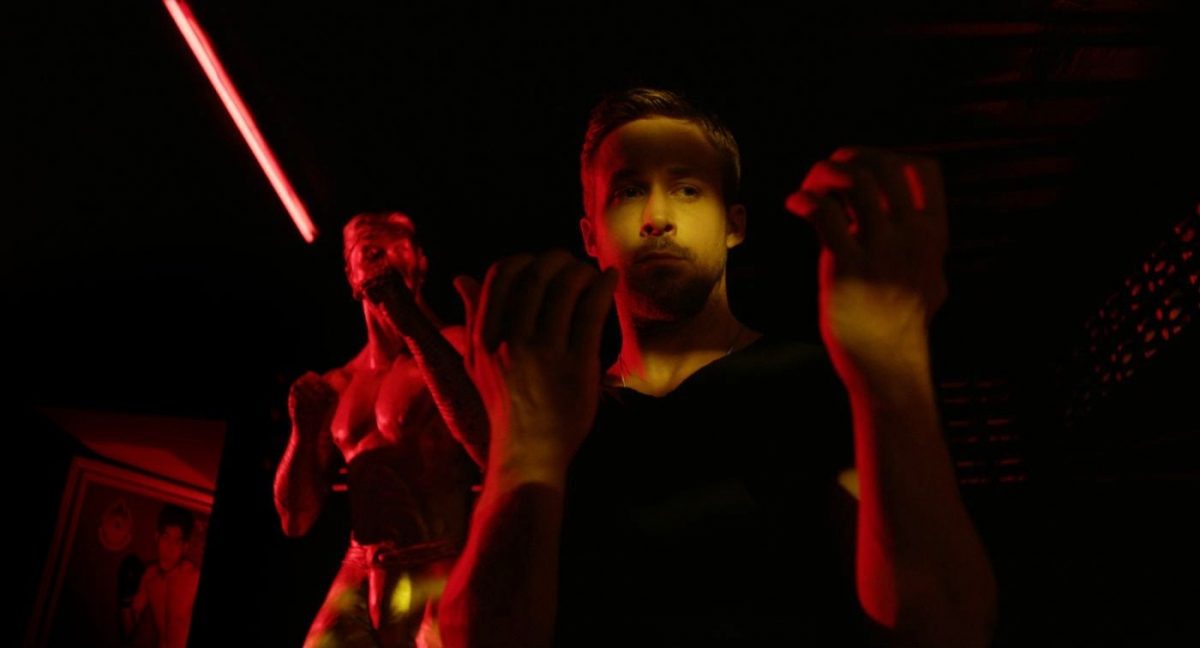 (1.5 / 5)
(1.5 / 5)
It’d be easy to dismiss Only God Forgives as Drive in Bangkok: as in his previous collaboration with director Nicholas Winding Refn, Ryan Gosling stars as a laconic, almost too-cool protagonist amidst neon lights and bursts of shocking violence.
That’s not the reason you should dismiss Only God Forgives, however. The reason is that it’s simply not very good.
Substituting an eerie red glow for Drive‘s softer palette, the film takes place more or less unambiguously in hell or at very least some form of purgatory. It’s a purgatory where Gosling’s now too-silent, supposedly tormented Julian stalks corridors perpetrating acts of sudden, matter-of-fact brutality for no ostensible reason.
His child murdering rapist brother is dead and his callous, entitled mother, Crystal – Kristin Scott Thomas in peroxide hair and leopard print – makes an appearance to demand revenge. Vithaya Pansringarm’s Chang governs the lawless streets as a karaoke-singing, katana-wielding Angel of Death. Blood glistens and sprays, and still Only God Forgives feels strangely anemic.

Freudian subtext abounds, covert – Crystal coiled around Julian’s waist – and not so – Julian, we are told, fled the states after murdering his father. She smokes on balconies calling for reprisals like Lady Macbeth, he watches skin shows and stares angst-ridden at his hands; only Chang acts, bloodily extracting justice amidst Orientalist fantasia: there are no complex, sympathetic characters, only archetypes.
Only God Forgives is all about the symbolism, but in replacing the moral ambiguity of Drive with a simple binary of good and evil, it feels shallow, almost satirical. Though cinematographer Larry Smith experiments alluringly with illumination – it’s twenty minutes before we see natural light – it feels sedate, lacking in internal life. Even Cliff Martinez’s electronic score, such a crucial part of the earlier film, feels overdone, like it’s imitating itself.
Refn’s ability to frame a shot is magnificent – the film is nothing if not beautiful – but, despite the clear influence of auteurs like David Lynch and Gaspar Noe, Only God Forgives is a definite case of diminishing returns. Inscrutable and elliptical in equal measure, full of dream sequences and a sense of dislocation, Refn’s self-professed investigation into the mystic comes across as simply mystifying.
While the film may not elicit the boos it received at Cannes, when all is said and done, it slips away like an insubstantial dream.
